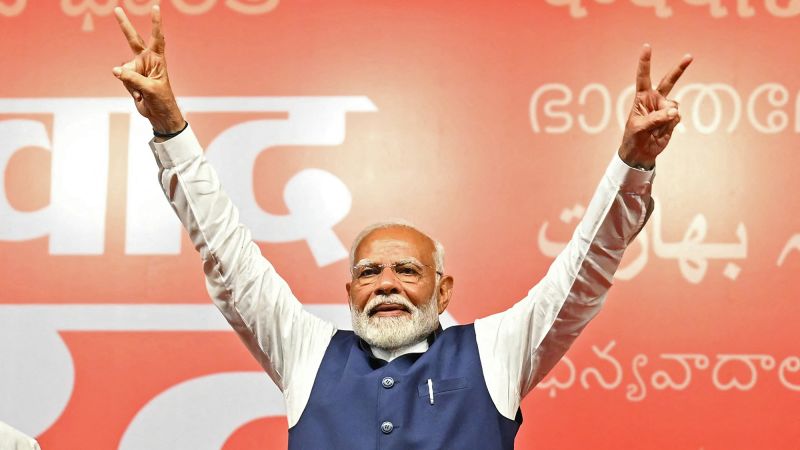
India's Prime Minister Narendra Modi secured a third term in office following the country's general elections, but with a smaller-than-expected mandate. The Bharatiya Janata Party (BJP), which is led by Modi, emerged as the single-largest party in Parliament but fell short of clear majorities from previous elections. This means that Modi will need to rely on coalition partners to form a government.
Despite the reduced mandate, Modi is seen as the best person to deliver on economic promises and cement India's rank as a major global player. The Indian economy has been growing impressively under his leadership, with a large populous young workforce contributing to its growth.
The opposition Congress party performed better than expected in the elections, winning 99 seats in Parliament. Rahul Gandhi, the president of the Congress party, called it a moral and political loss for Modi and hailed it as a victory for democracy.
Modi inherited a rising economy when he came to power in 2014 and has maintained impressive growth rates since then. The Indian stock markets plunged following the election results, but opposition parties rejoiced at the signs of Modi's fading political potency.
The BJP's Hindutva ideology, which promotes Hindu nationalism, has been criticized for stoking anti-Muslim hate and right-wing extremism. Modi has denied targeting the Muslim minority to win the favor of the Hindu majority. The Indian voter turnout in this election was record-breaking, with over 642 million people casting their votes.
Modi's economic agenda could be disrupted due to his smaller-than-expected mandate. He will need to rely on coalition partners that don't share his Hindu nationalist agenda, which may lead to policy compromises and delays.



